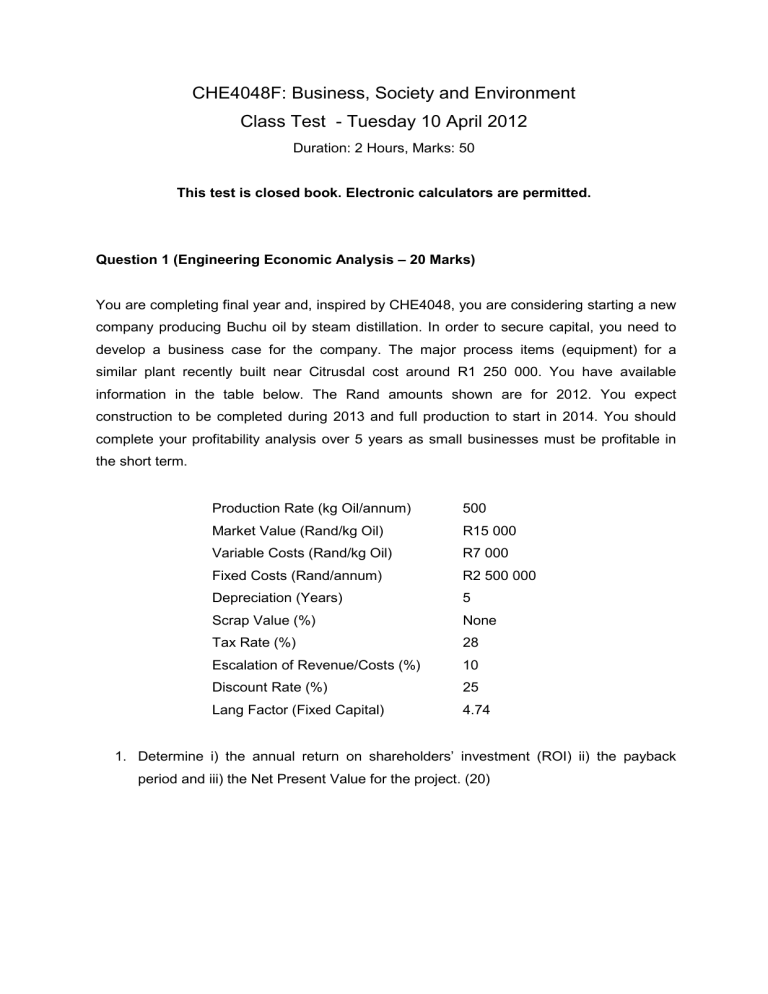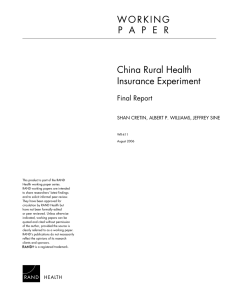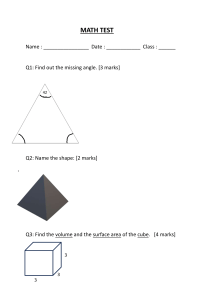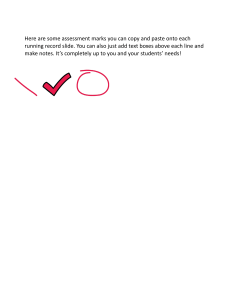
CHE4048F: Business, Society and Environment Class Test - Tuesday 10 April 2012 Duration: 2 Hours, Marks: 50 This test is closed book. Electronic calculators are permitted. Question 1 (Engineering Economic Analysis – 20 Marks) You are completing final year and, inspired by CHE4048, you are considering starting a new company producing Buchu oil by steam distillation. In order to secure capital, you need to develop a business case for the company. The major process items (equipment) for a similar plant recently built near Citrusdal cost around R1 250 000. You have available information in the table below. The Rand amounts shown are for 2012. You expect construction to be completed during 2013 and full production to start in 2014. You should complete your profitability analysis over 5 years as small businesses must be profitable in the short term. Production Rate (kg Oil/annum) 500 Market Value (Rand/kg Oil) R15 000 Variable Costs (Rand/kg Oil) R7 000 Fixed Costs (Rand/annum) R2 500 000 Depreciation (Years) 5 Scrap Value (%) None Tax Rate (%) 28 Escalation of Revenue/Costs (%) 10 Discount Rate (%) 25 Lang Factor (Fixed Capital) 4.74 1. Determine i) the annual return on shareholders’ investment (ROI) ii) the payback period and iii) the Net Present Value for the project. (20) Question 2 (Sustainable Development – 15 Marks) 1. List four currently proposed forms of renewable energy. (4) 2. Define the three components of the Human Development Indicator (HDI). (3) 3. List 4 of the 8 Millennium Development Goals at the highest level (include the actual target associated with the goal) (4) 4. What is the current CO2 concentration in the atmosphere? Where is the CO2 concentration in the atmosphere modelled to plateau and what behaviour is required to secure this? (4) Question 3 (Risk Management – 15 Marks) Concepts And Terminology True/False (4) 1. Hazards exist whenever there is an energy source. 2. In general, incidents are not influenced by prevailing energies. 3. The underlying cause of accidents are a result of the controlled release of energy. 4. Hazards should be managed so that no release of energy can occur. Human Error And Decision Making True/False (6) 5. Every decision introduce risk. 6. We should understand the relevant behaviours to manage risk. 7. Memory lapses are caused by a lack of knowledge as a result of inadequate training. 8. Because risk management requires good risk assessment, we can only manage risk retrospectively . 9. Tactical decision making relies on unconscious skills. 10. Strategic decision making relies on a formal, planned and step-by-step process. Controlling Energy (5) 11. The hierarchy of control offers a good framework for considering the effectiveness of controls. Fill in the blank spaces below where the most effective control is at the top and the least effective at the bottom.






